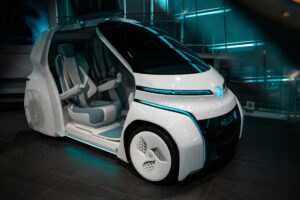Have you ever imagined a world where cars could drive themselves, navigating through traffic without any human intervention? Well, that future is closer than you think, thanks to the rapid advancements in autonomous vehicle technology.
With companies like Tesla, Waymo, and Uber leading the way, autonomous vehicles are no longer a concept limited to science fiction movies. These self-driving cars rely on a complex network of sensors, cameras, and artificial intelligence algorithms to interpret their surroundings and make split-second decisions on the road.
According to a report by Allied Market Research, the global autonomous vehicle market is projected to reach $556.67 billion by 2026, with a compound annual growth rate of 39.47%. This exponential growth is fueled by the promise of safer roads, increased efficiency, and reduced carbon emissions.
But despite the potential benefits, there are still challenges to overcome, including regulatory hurdles, cybersecurity threats, and public perception. As Elon Musk, CEO of Tesla, puts it, “The biggest challenge is not the technology, but the acceptance and adoption of autonomous vehicles by society.”
As we stand on the brink of a transportation revolution, it’s important to consider the broader implications of autonomous vehicles on our cities, our jobs, and our way of life. Will self-driving cars pave the way for a more connected and sustainable future, or will they disrupt industries and displace workers? Only time will tell, but one thing is certain – the future of transportation is autonomous, and it’s coming sooner than we think.



